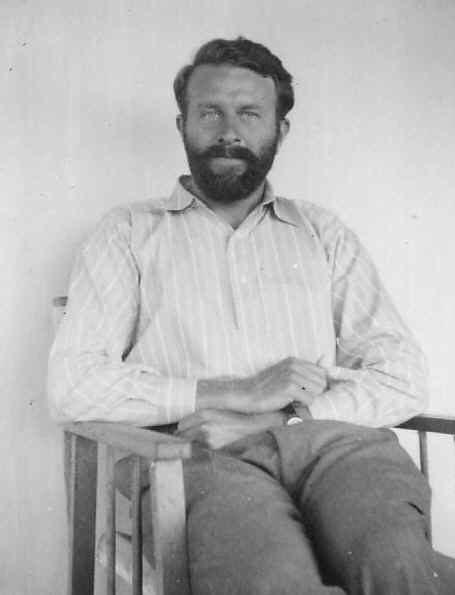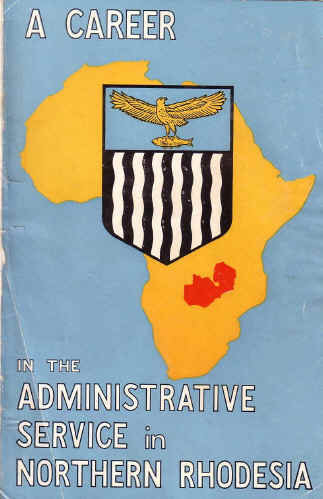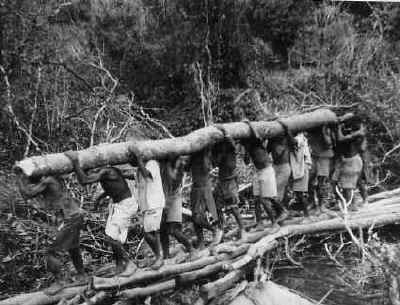1947
- 1964

The Main Story - Northern Rhodesia
On leaving Cambridge, I was appointed to the Colonial
Administrative Service. I spent nine months in the Colonial Office, assisting in the
recruitment of engineers and other technical people, and was then offered a choice of the
following year's overseas vacancies. The Director of Recruitment, a noted economist who
subsequently became General Manager of the United Africa Company, recommended Northern
Rhodesia.
 |
So in July
1947, I found myself in Ndola (Northern Rhodesia), about to drive an elderly
vanette 370 miles, mostly on earth road, much of it newly constructed, to Mwinilunga in
the far north west. I spent most of my time there, with a spell in Ndola District when I
got married, until I returned on home leave and my Cambridge year in 1954, having taken
over as District Commissioner in October 1949.
In those days, the atmosphere was peaceful and
non-political. Only forty years previously, within living memory, British law and
administration had taken over from widespread lawlessness, slave-raiding, inter-tribal
conflict, and the frequent use of brutality by tribal chiefs to maintain their authority.
Our arrival provided a feeling of relief among the inhabitants, and our management was
still being welcomed. |
There was of course a great deal to be
done. Even the access road had only recently been completed. Before that time, everything
had been carried by porters up the old Congo Border surveyor's track. Funds were available
from the newly profitable copper mines, and were not yet being filched by the Federation
subsequently imposed upon us (shades of the EU!).
 |
Our Districts were about the
size of Wales, but with small widely distributed populations. Initially
we bicycled to each village about twice a year, hearing appeals from the local courts,
sorting out complaints and land disputes, ensuring the payment of tax to the local chiefly
authorities, and so forth.
I actually mapped every village, using my old army compass and a
cyclometer. |
| . |
 |
We built hundreds of miles of
road, including great timber bridges across major rivers. This required large labour
forces, which had to be fed far from home, necessitating a supply organisation. This in turn provided a market for local villagers. They also produced
valuable commodities, such as pineapples and coffee, which we were later able to market on
the Copperbelt.
Rebuilding the Kabompo Bridge |
There were public buildings to be
constructed, brick works to be established, and my Field Engineering Pocketbook was
invaluable. Christian Missions had been established in the early days, so a small number
of English-speaking and competent local clerical staff could be trained.
Sometimes I
looked after the District entirely by myself, but normally I had one or two other British
staff. As a Magistrate Class 2, I had to become a lawyer, and I had also to achieve a
Higher Standard in the Lunda language. We had no police, just a force of local constables,
known as District Messengers, who acted as our agents throughout the District.
Apart from ourselves, the District thus functioned
entirely with local people. But these satisfactory arrangements did not last much beyond
the middle 1950's, when the emergence of all kinds of political pressures imposed complex
problems and masses of paperwork, and turned us into a bureaucracy.
After Mwinilunga, I was in charge of two further
Districts, Mumbwa and Samfya, and then moved into central government, first in the
Treasury, and then on the production of a programme for up-dating staff housing in the
Territory. I also served as the first Registrar of the new College of Further Education.
Finally, I was the government representative on the Seers Economic Survey Mission, 1964. |

